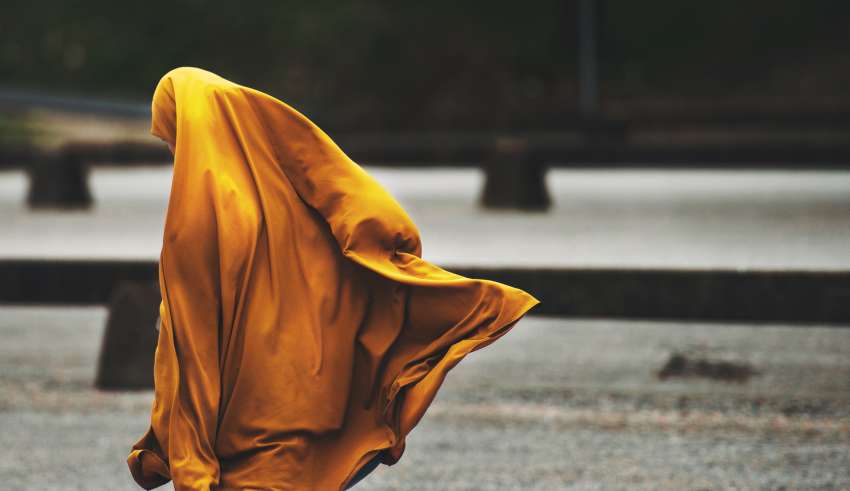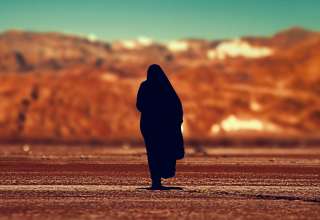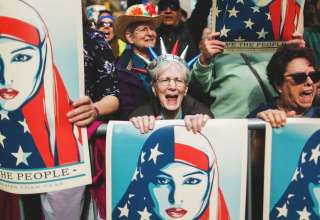
Women’s Liberation Through Islam
Over centuries, Islam has spread to every corner and space in the world and today, it stands as the fastest growing religion in the world. According to statistics, women are accepting Islam daily. This poses an interesting question; why are so many women converting to Islam? Why is it they are drawn to a religion that is widely criticized in the world today? What does the religion of Islam have to offer to them? Islam honors women through a myriad of ways; from elevating their status in society to granting them various rights and choices.
Breakthrough in Gender Equality
Prophet Muhammad (peace and blessings be upon him) shared the message of Islam in the seventh century, at a time when injustice and sexism was rampant in the highly patriarchal society of pre-Islamic Arabia. Women had little to no basic human rights. Not only were they considered as the inferior sex, but also treated as property. There was no limit to the amount of wives a man could ‘own’ and in the event of his death, his sons would inherit his wives. Female infanticide was also a common custom at the time, where many buried their daughters alive on the basis they were worthless.
In European countries, women were treated no better. In fact, they were not only considered inferior, but actually considered to be inherently sinful and filled with wickedness. Many debated whether they were devils or witches and an estimated 9 million women were killed in witch-hunts between the 14th and 17th centuries.
Islam, however, revolutionized gender equality and brought with it an entirely different set of ideas, abolishing various habits that existed in the world at the time. Many assume women and men in Islam are not treated equally. Yet, equality and justice are two very different concepts. Equality assumes that everyone is the same; regardless of variations in strengths/limitations and abilities/disabilities. Justice aims to treat people in the same way and takes into consideration the contrasts between people.
Islam promotes justice. Justice, in that women and men are considered equals in terms of their nature, spirituality, morals, and their worship of God; neither is considered superior or inferior to the other. However, rights and roles/responsibilities in society and towards one another differ. This is understandable given that God created both genders as inherently different, with varying needs, capabilities and talents.
God Almighty states in the Quran:
“And whoever does righteous good deeds, male or female, and is a true believer in the Oneness of Allah, such will enter paradise; and not the least injustice, even to the size of a speck on the back of a date stone, will be done to them.” [Noble Quran 4:124]
Hijab
The Hijab, the headscarf worn by Muslim women, is a religious commandment ordained by God in the Holy Quran. Yet the choice to wear it lies in the hands of the women, as do the conditions pertaining to it, such as the covering of the hair, ears and neck, and the focus on modest, loose and non transparent clothing.
What’s interesting to note is the headscarf is not only significant to the Islamic faith, but to other faiths as well. From Christianity to Judaism and dating as far back as the 1st century, the headscarf was not only a part of religion but also fashion. It wasn’t up until the late 20th century that it faded out of fashion in the West. Currently, it is sparsely worn by certain Orthodox Christian denominations, such as the Mennonite, Amish, Brethren and Hutterite women, and some Orthodox Jews as well.
For Muslim women across the globe, the Hijab is more than a symbol of their religion. It represents their identity, femininity and empowerment. The stark reality that so few perceive is that Muslim women want and choose to wear the Hijab. Why? Many state that it gives them a sense of freedom and allows them to make their own choices without being judged based on their outward appearance and without conforming to the cookie cutter role that society dictates. The Hijab provides the opportunity to be appreciated for their intellectual abilities and talents and allows them to set the standard for how the world sees them. In the words of Sara Bokker, former US actress and model, “To women who surrender to the ugly stereotype against the Islamic modesty of Hijab, I say: You don’t know what you are missing.”
Moreover, many can also relate to the wisdom behind the Hijab. A simple piece of cloth which not only serves to increase one’s modesty but also plays part in protecting one from sexual objectification. In a world where women are often viewed as sexual commodities and seen as advertising tools, it is a wonder that some actually consider baring skin to be ‘true liberation.’ Famous advertisements used by various companies often display women’s bodies in order to commercialize their products.
Marriage
The constitution of marriage is one that is sacred and highly revered in Islam. When choosing a potential spouse, one of the main conditions for a legitimate marriage contract in Islam is that of mutual consent by both partners. Just like a man, a woman has the right to accept or reject suitors as she wishes. Likewise, she is free to seek divorce (with a valid reason) if she wishes.
In fact, one of the most famous statements of the Prophet Muhammad (peace and blessings be upon him) encourages good treatment to wives – “The best of you in faith are the best to their wives.”
As a wife, there is no obligation upon her to work to support her family, yet she may work if she chooses. The money she earns is hers to spend as she wishes. She also does not need to pay for her house, her wardrobe, or even her education. All of this must be provided by her husband. In other words, by Islamic standards, she is to be treated like a princess.
Inheritance
When it comes to inheritance in Islam, a system has been put in place in order to ensure women of the family are taken care of. Although the inheritance money a man receives is higher than a woman’s, his responsibilities as guardian are very much intact. The money the woman receives is hers to spend as she pleases, while the money the man receives must be spent on those that are dependent upon him; including the women in his family. For example, in a scenario where a father passed away and left behind sons and daughters, the sons are obligated to spend from their inheritance money in order to support and maintain their sisters’ lifestyles, from their education to their wedding and so on. Whereas the daughters’ inheritance money is theirs to spend in any way they please.
Furthermore, Islam was also the first religion to eradicate the concept that women could not own and inherit property. According to Islamic law, women have full autonomy over the money they receive or earn. They are permitted to take part in trade transactions and operate businesses and are not limited in any financial scope. This was revolutionary not only in the East but also in the West as it wasn’t until the late 19th century, 1300 years later, where women received rights of inheritance in Europe and America. Until then, their property was controlled by their husbands and sons.
Shifting Paradigms
Confusion sets in when Islam is judged based on the actions of a minority of people, instead of the teachings of the religion itself. Just as in every religion or group, some people adapt, adjust, or manipulate the guidelines to suit their own purpose. Some choose to uphold cultural norms. Because of this, popular misconceptions about Islam have arisen and come to the forefront. Indeed Prince Charles was right in saying, “Our judgement of Islam has been grossly distorted by taking the extremes to be the norm… The extremes exist, and they must be dealt with. But when used as a basis to judge a society, they lead to distortion and unfairness.
Islam explains the value of women and teaches her rights and how to treat her. At a time where xenophobia and Islamophobia are on the rise, it is crucial now more than ever that we unite and rise above hatred and prejudice to work together to support and uplift the women population. It is only through understanding that true liberation can be achieved; liberation from distrust and disunity. We achieve nothing more than the oppression of ourselves when we perceive others through the lens of oppression. As individuals who share the same world and space, mutual peace and understanding is key to prospering and thriving as a people.












